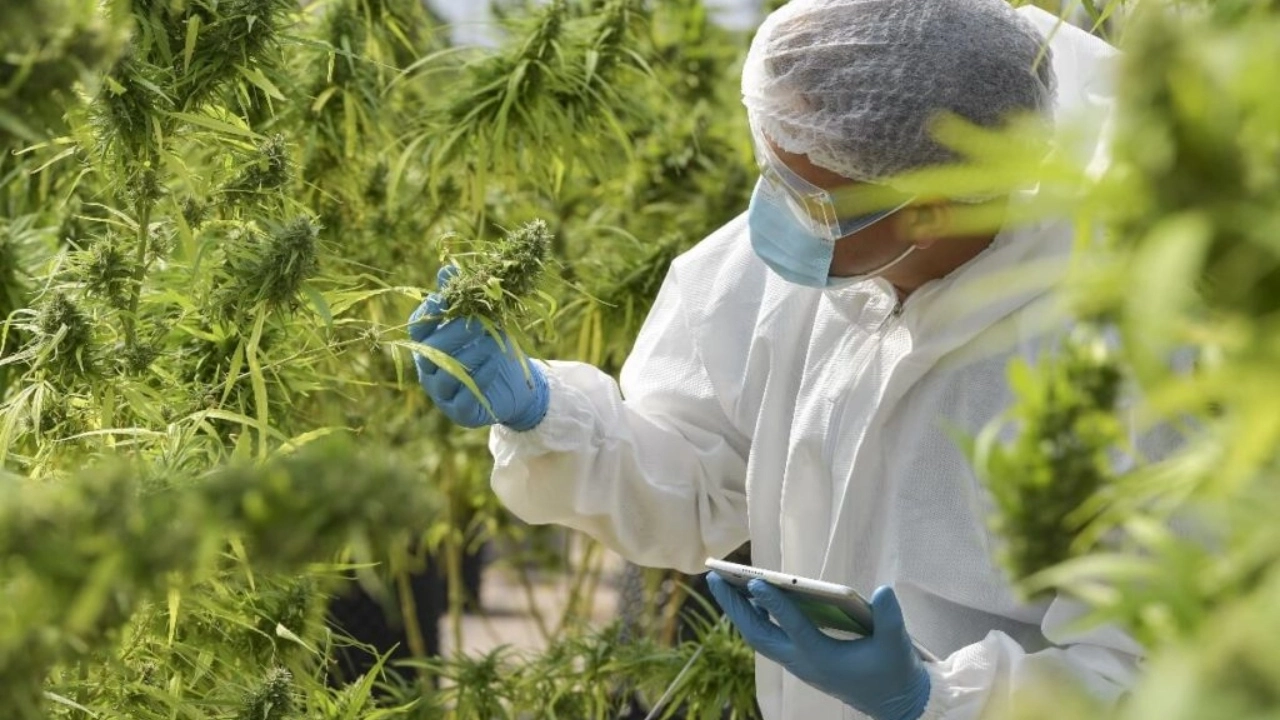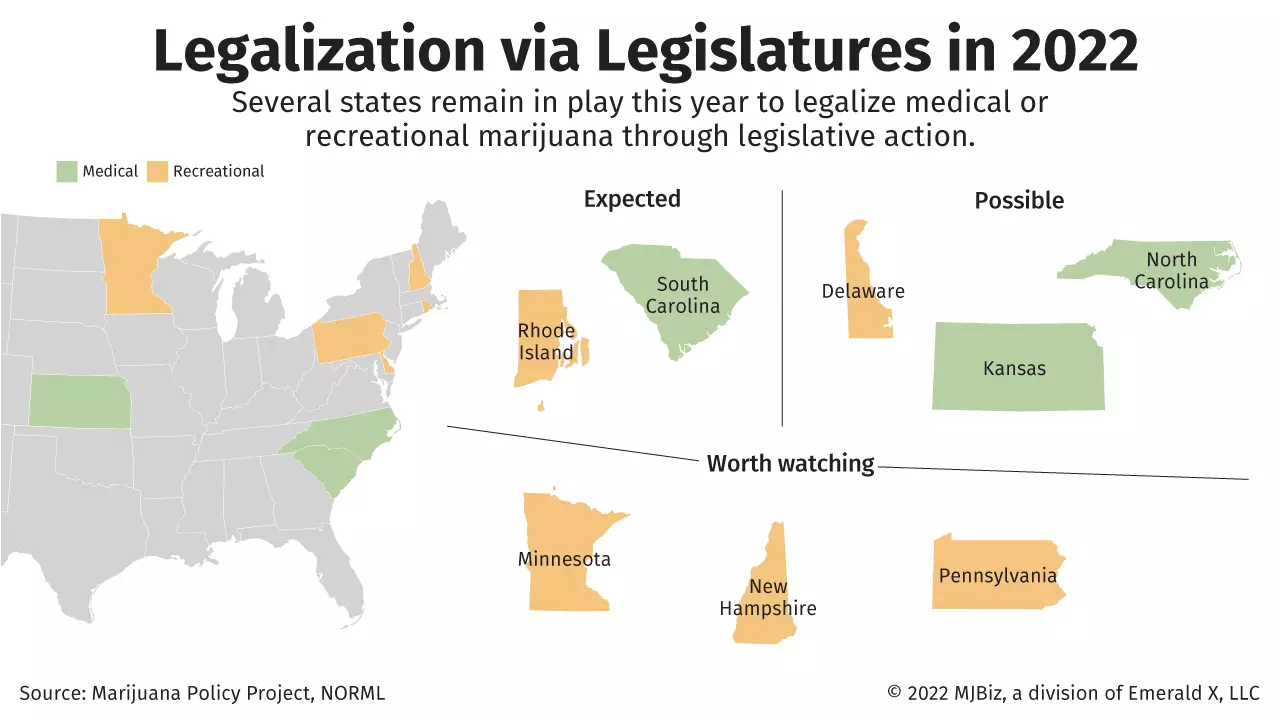(This is an abridged version of an interview that appears in the April issue of MJBiz Magazine.)
Customization and no-contact delivery are two big retail trends that appear to contradict one another: Consumers are looking for personalized products, but they don’t necessarily want to spend a lot of time in a store.
The twin trends present a special challenge for cannabis retailers – both those selling high-THC marijuana in regulated markets and those selling low-THC hemp extracts nationwide.
That’s because cannabis retailers must also navigate a thicket of confusing legal requirements as they fend off challengers from the illicit market.
To find out how a large, multistate cannabis retailer captures the wellness-minded consumer while juggling complex regulations, MJBizDaily spoke with:
- Jay Benge, president of SunFlora, a Florida-based chain of franchised Your CBD Store retailers with more than 500 locations in the United States and United Kingdom.
- Ryan Sinclair, the company’s chief marketing officer.
How has the COVID-19 pandemic changed cannabis retail?

Sinclair: There’s greater consumer desire for convenience. They’re willing to spend more to get that convenience.
For some of the other CBD brands, they didn’t have the brick-and-mortar locations that we had with a community we’d already created.
I think that’s one thing that’s helped us not just maintain our business levels through the pandemic but continue to grow.
Going forward, there’s a tremendous opportunity for us to grow our online presence. The key there is focusing on it in the right way.
We deliver an amazing experience in our stores, providing that touchpoint, that interaction with someone who can help walk you through a journey or help explain a new product.
We want to be able to translate that to our online experience.
And that’s something that we’re in the middle of working on right now.
How has your company been affected by supply-chain complications, and what is the situation now?
Benge: When we saw the pandemic happening in early 2020 … we actually stocked up on our extracts, we stocked up on materials to produce our tinctures, our terpenes or proprietary terpenes.
And we’ve been very fortunate that we did that.
We really dove into the data and the metrics and really looked at how much and what we needed and where we could make efficient decisions to make sure that the operation continued to flow without interruption.
Now we are starting to see some availability issues when it comes to flavorings.
But that’s really kind of the only stressor at this point that we’re feeling.
Some of the flavorings that we’ve historically used in our products aren’t as available as they used to be. … We used to be able to get a flavoring mix in two weeks, and now we’re sometimes looking at six to eight weeks.
One retail trend that accelerated during the pandemic is no-contact shopping and curbside delivery. Do you think no-contact shopping is coming to cannabis?
Sinclair: It’s a huge point of differentiation for our brands, having that expert in the store and having that interaction in the store.
Especially as we continue to bring new products to market, it’s important for that interaction to happen.
Are you a social equity cannabis license holder or applicant?
The MJBizCon team is now accepting 2023 Social Equity Scholarship Program applications.
The mission of this program is to provide social equity cannabis license holders or applicants access to the #1 global cannabis industry conference + tradeshow in Las Vegas.
Who can apply?
- Students currently enrolled in a cannabis-related program at an accredited university or college.
- Cannabis executives at licensed social equity cultivation, extraction/processing, retail, manufacturing/brand businesses (or awaiting application approval).
Don’t miss out on this potentially life-changing opportunity.
Apply to attend MJBizCon today – The application period will close on July 24!
But I will say a key focus for us going forward is to improve our online experience that we offer our customers, whether that’s helping them order products online that they can pick up in-store or providing them additional information on new products that are coming out and an easy way they can go pick them up.
Still, that connection to the wellness expert in our stores is critical. And that’s going to be a part of what we are going forward.
What else is trending in CBD retail?
Benge: We launched our first weight-loss product in October of 2021 … and it’s been received extremely well by our store owners and by their customers.
We’re excited about the growth specifically connected to minor cannabinoids, and we continue to expand in that area.
We’re excited to be really digging into research around beverages and trying to develop some products that makes sense for us to put out on our store shelves at the Your CBD Store locations.
Some say that CBD retailers will become THC dispensaries when that becomes a national possibility. Could your company flex into THC products?
Benge: Nothing’s off the books at this point. But I will say that our model is designed at this point to really cater to that .03% or less (THC) market. And it is quite a large market.
What happens to CBD-only stores when states allow adult-use marijuana retail and consumers can get all kinds of cannabis products? Do CBD-only stores go away?
Sinclair: There have been several articles where financial analysts have indicated that that’s going to be the case.
But I will tell you that in states like California and Arizona, we have actually seen just the opposite.
What we’ve seen happen is, when adult-use (marijuana) becomes legal, the stigma surrounding the product goes away and people are more accepting.
They want to come to our stores; they want to learn more; the stigma is gone.
So we’re actually seeing an increase in business in states where adult-use (marijuana) has been legalized, both in mature markets like California and new markets like Arizona.
This interview has been edited for length and clarity.
Hemp Editor Kristen Nichols can be reached at kristen.nichols@mjbizdaily.com.





